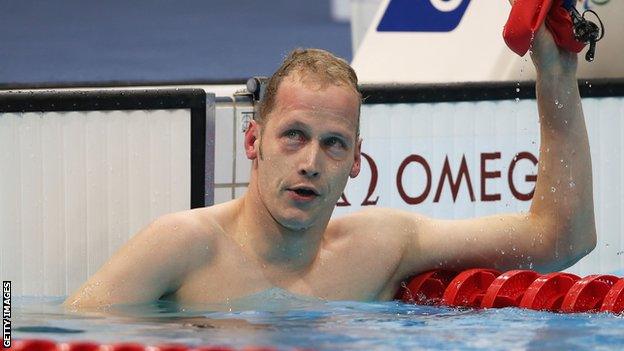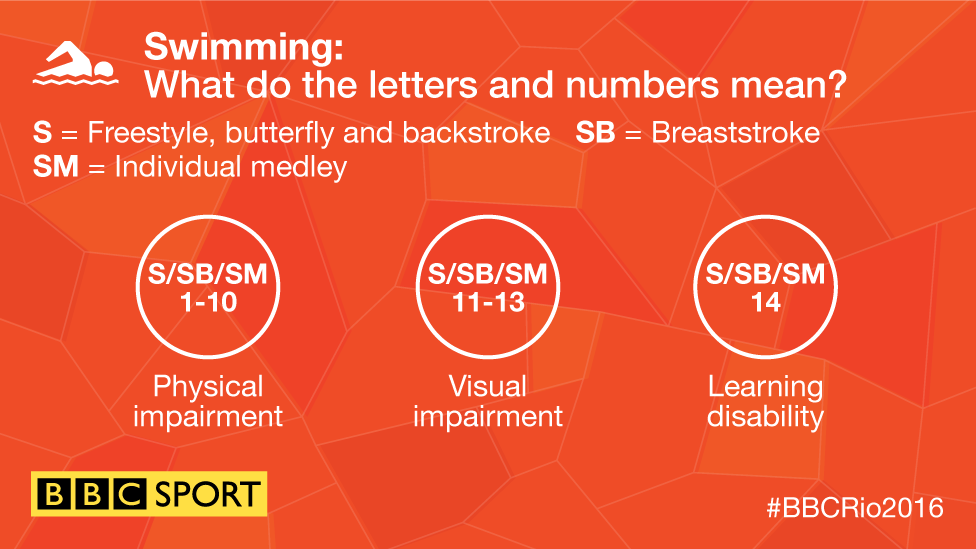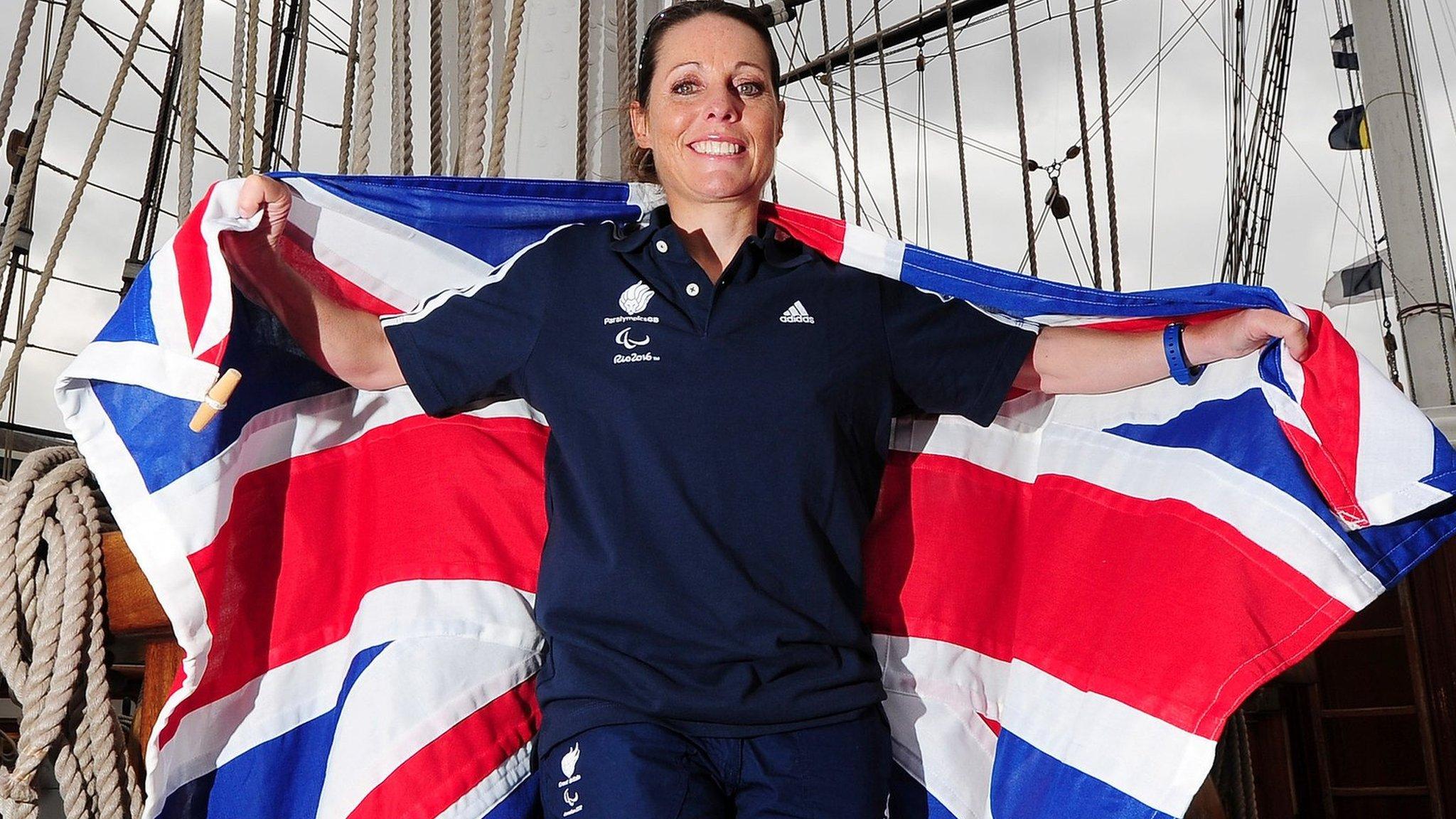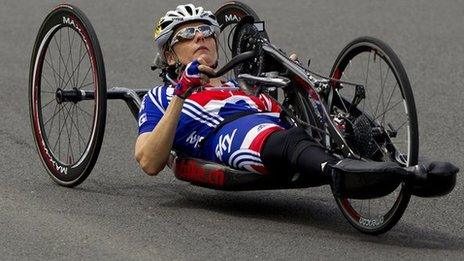Swimming at the Rio 2016 Paralympics: All you need to know
- Published
Paralympic Games on the BBC |
|---|
Venue: Rio de Janeiro, Brazil Dates: 7-18 September Time in Rio: BST -4 |
Coverage: Follow on Radio 5 live and via live text commentary |

Great Britain's Sascha Kindred has been competing in Paralympic competition since 1996 and has won 12 medals at the Games
How does it work?
Races take place in a standard 50m pool in the freestyle, backstroke, breaststroke and butterfly disciplines over distances which range from 50m to 400m.
Swimmers are divided into 14 classes. Those with physical impairments are classified from S1 to S10. The lower the classification number, the more severe the impairments.
Classification is based on how an athlete moves in the water, so athletes with different impairments compete against each other but they will be deemed to have a similar level of impairment in competition.
An athlete's classification may change for different swimming strokes because the nature of their impairment may affect their ability to perform a particular stroke.
Swimmers with visual impairments are classified from S11 (little or no vision and wear blacked-out goggles) to S13 (less than 20 degrees of vision). Swimmers who are blind have an assistant called a 'tapper' who may use a pole to tap the swimmer to warn them they are approaching the end of a length.
The S14 class is for swimmers who have a learning disability.

Who are the British medal hopes?
UK Sport has given the swimming team a target of between 35 and 45 medals in Rio. Ollie Hynd and Jonathan Fox will be hoping to repeat their London success while Bethany Firth, who competed for Ireland four years ago, Ellie Simmonds and Tully Kearney will be leading medal contenders. Veteran Sascha Kindred, at his sixth and final Games, will be aiming to finish his Paralympic career on a high.
Who are the other challengers?
Russia and Ukraine led the medal table at last year's World Championships in Glasgow and will figure strongly again. Australia and Brazil will also feature along with the USA, who include a host of stars such as 12-time Paralympic champion Jessica Long and Invictus Games hero Elizabeth Marks.
It was Marks who presented her gold medal to Prince Harry to give to the medical staff at Papworth Hospital after they helped save her life when she fell ill during the inaugural 2014 Invictus Games in London.
Home hopes lie with Daniel Dias, who has 10 Paralympic golds to his name, and Andre Brasil who has made the S10 50m and 100m freestyle events his own over the past few years.
Did you know?
Thirteen-year-old Abby Kane will be the youngest member of the British team in Rio. She started swimming after a family holiday in Australia when she was a child.
ParalympicsGB London 2012 medals
39 - Seven gold (Jessica Jane Applegate, S14 200m freestyle; Ellie Simmonds, SM6 200m individual medley, S6 400m freestyle; Josef Craig, S7 400m freestyle; Jonathan Fox, S7 100m backstroke; Ollie Hynd, SM8 200m individual medley; Heather Frederiksen, S8 100m backstroke); 16 silver and 16 bronze.
- Published23 August 2016

- Published5 September 2016
